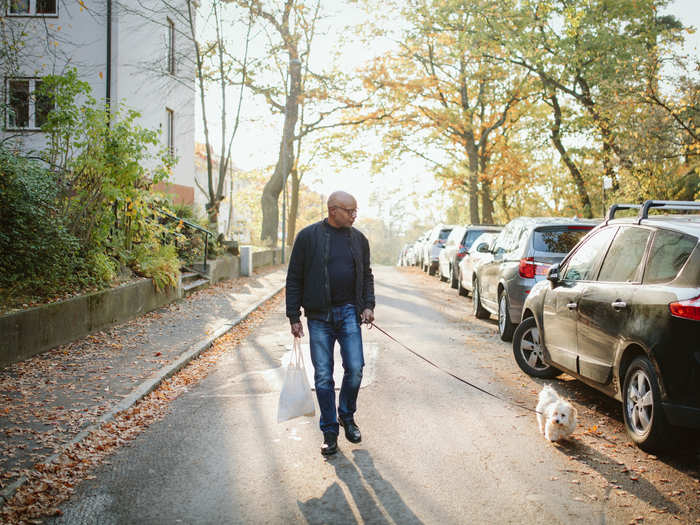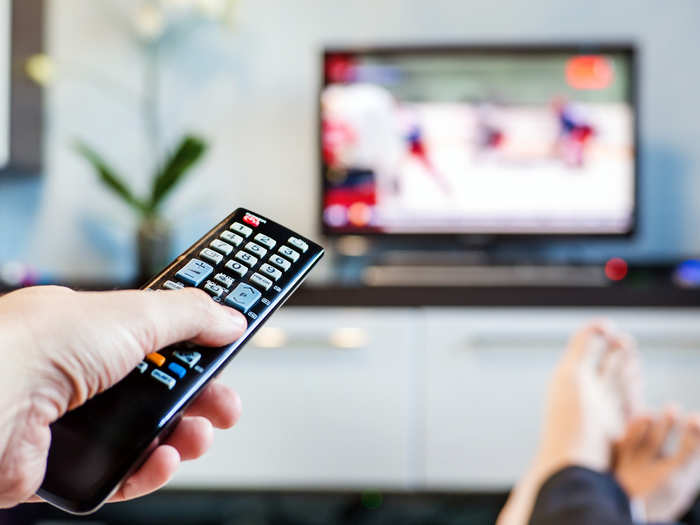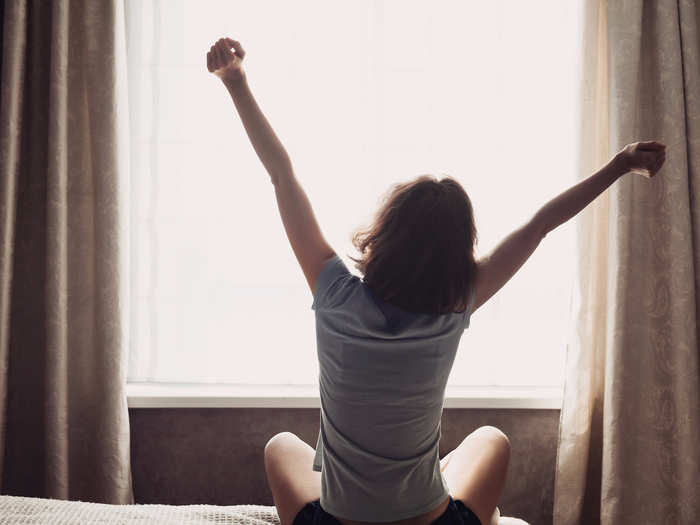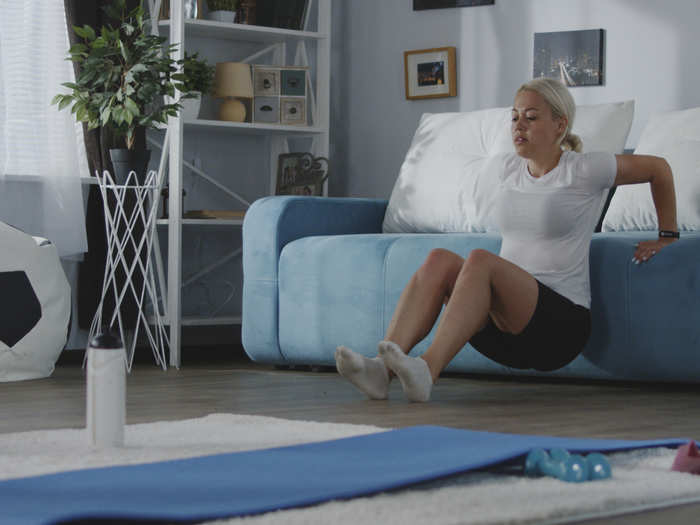- Home
- slideshows
- miscellaneous
- 5 ways to get restful sleep during a pandemic, according to a sleep expert
5 ways to get restful sleep during a pandemic, according to a sleep expert
1. Stop watching so much Netflix at night

2. Get natural light — especially in the morning

The blue light that disrupts sleep at night has the opposite effect in the morning and during the day. Bright light actually helps to align healthy sleep-wake cycles — but most artificial light isn't strong enough to have a positive effect.
You want to expose yourself to the blue of the morning and early afternoon sky. Take a morning walk or jog while staying six feet away from others. If you're working from home, position your desk to face the window. Open the blinds. Sit in front of a window. Knit, read, pace, or do a crossword puzzle while exposing your eyes to this type of healthy light.
3. Limit your daily news watching

We are all glued to the news. Details are changing every day, so do stay informed of the latest health recommendations. Don't watch so much cable or local news that you end up increasing your risk of developing an anxiety disorder.
Reading the latest recommendations for 10 minutes a few times per day is better for your sleep than watching 10 hours of news per day. After 9/11, PTSD-like stress responses were present in people around the country who were nowhere near the Twin Towers. These stress responses can interfere with good sleep. Find the sweet spot: Be informed without becoming an anxious, cable-news couch potato.
4. Keep your bedtime and wake time consistent

Remember, your circadian rhythm of melatonin which rises at night and dips during the day is designed to function in a 24-hour rhythm that corresponds to natural light. Coronavirus doesn't make us immune to this natural phenomenon.
With school and work getting cancelled, many Americans are sleeping whenever they want, which disrupts sleep-wake cycles. One of the simplest and easiest ways to help your sleep-wake cycle get back on track is to set a bedtime and wake time you can adhere to on a regular basis. Go back to your pre-coronavirus times. Consistency is key.
Melatonin can be effective at helping to realign your sleep-wake cycle. With the increasing amount of TV we're now consuming, melatonin levels are likely to be lower. If you're having trouble getting back to your pre-coronavirus sleep schedule, try taking a melatonin gummy or fast-dissolve tablet 20 minutes before bedtime if you have trouble falling asleep. If you're having trouble staying asleep or waking up too early, try a time-release melatonin.
5. Use app-based home workouts

When people have trouble sleeping, they tend to focus on what happens at night. What you're doing with your body during the day is just as important. Being physically tired at the end of a long day makes easy and restful sleep more likely. You'll burn a few extra calories by doing household chores, but you really need to add exercise to really improve sleep.
Many gyms are now offering free app-based workouts. The Peloton digital app doesn't require the purchase of their bike or treadmill, and has equipment-free classes like outdoor runs, yoga, and meditation. So does the workout app Aaptiv. Barry's Bootcamp is offering free body-weight and band classes on their Instagram page and the IGTV app. Many other local gyms are offering free workouts on YouTube or online links, so check their websites. Dust off the old workout DVDs if you still have a player, or check out Gaia or Beachbody on demand.
Popular Right Now
Popular Keywords
Advertisement